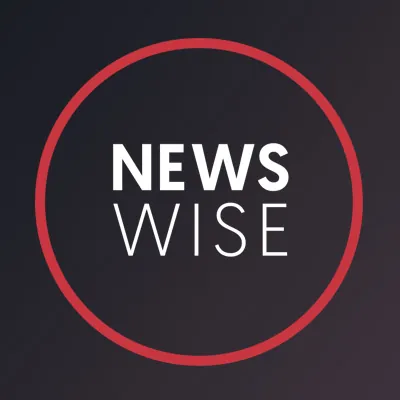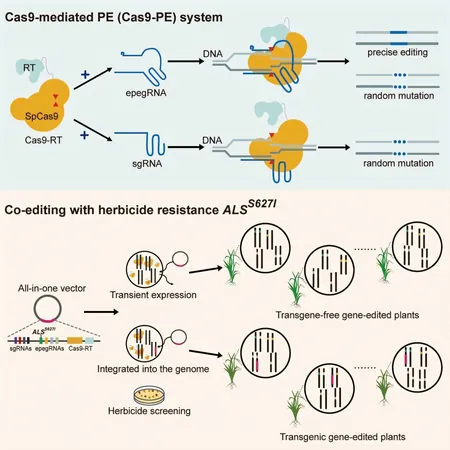
The Great Job Hunt: Do Women Really Have It Easier? Unveiling the Reality in Singapore
2024-11-15
Author: Li
Introduction
SINGAPORE: A thought-provoking question has emerged on Reddit: “Do women have it easier when finding a good job?” This debate ignited after a Singaporean man noticed that a friend of his took a six-month vacation and seamlessly landed a lucrative position afterward, leaving many to ponder the dynamics of job hunting across genders.
The man expressed his frustrations, stating that had he taken a similar break, he would have faced a barrage of questions about the gaps in his resume, feeling as though he was on trial. He illustrated this point through the success story of another female acquaintance who graduated from the Institute of Technical Education (ITE) and rapidly ascended to a sales consultant role at a multinational corporation, a feat he claimed he had never witnessed accomplished by male job seekers in Singapore.
Online Discussions
Online discussions sparked by this post saw some users resonating with his sentiments, suggesting that women may benefit from certain advantages in hiring scenarios, especially if they possess physical appeal. A former recruiter chimed in, stating, “It’s often easier for a female candidate to land a job. My previous manager would look at a woman with minimal experience but good looks and say, ‘Send her for the interview.’” Such comments reflect a perceived bias that leans in favor of women in certain hiring situations.
Varied Opinions
Conversely, opinions varied widely. Several users emphasized that gender or attractiveness shouldn't dictate hiring preferences. “I hire based on ability and fit for the role; gender makes no difference to me,” asserted one commenter. Moreover, stories emerged highlighting the challenges women face, such as being overlooked for leadership roles, undervalued contributions, or even facing discrimination upon returning from maternity leave. One individual recounted, “I got booted from my job when I became pregnant; they wouldn’t give me a fair shot after that.”
Research Insights
Interestingly, research from LinkedIn sheds light on the contrasting behaviors of men and women in the job application process. The study indicated that while a similar proportion of both genders engage with job listings and conduct company research, women are often less likely to apply for positions they’re interested in, with a striking 16% gap in application rates compared to men.
This cautious approach may stem from confidence issues; a report from Hewlett Packard revealed that women tend to wait until they meet all the job qualifications before applying, while men will often proceed with applications when they meet only a portion of the criteria. Marc Cenedella, founder of The Ladders, poignantly illustrated this by saying, “Women often feel they need to tick off all the boxes, whereas men will jump in with just one.”
Hiring Statistics
For the silver lining amid this discussion: women who do choose to apply are actually 16% more likely to be hired than their male counterparts. This trend is even more pronounced for senior-level positions, where women’s chances of securing jobs surpass men’s by 18%.
Employer Interactions
However, another layer to this complex narrative reveals a slight bias in how employers interact with job candidates. The LinkedIn study shows that men’s profiles are viewed more frequently by employers; women appear in search results but are 13% less likely to receive clicks on their profiles.
Conclusion
In summary, while women may find unique opportunities in the job market, they also encounter significant hurdles that often challenge their career progression. As the job landscape continues to evolve, the conversation surrounding gender biases and hiring practices remains crucial for creating an equitable workplace for all.
As Singaporeans navigate the modern job market, discussions like these highlight the ongoing struggle for equality and fairness beyond gender lines. What are your thoughts? Are the scales tipped in favor of women, or does each gender face their unique set of challenges?


 Brasil (PT)
Brasil (PT)
 Canada (EN)
Canada (EN)
 Chile (ES)
Chile (ES)
 España (ES)
España (ES)
 France (FR)
France (FR)
 Hong Kong (EN)
Hong Kong (EN)
 Italia (IT)
Italia (IT)
 日本 (JA)
日本 (JA)
 Magyarország (HU)
Magyarország (HU)
 Norge (NO)
Norge (NO)
 Polska (PL)
Polska (PL)
 Schweiz (DE)
Schweiz (DE)
 Singapore (EN)
Singapore (EN)
 Sverige (SV)
Sverige (SV)
 Suomi (FI)
Suomi (FI)
 Türkiye (TR)
Türkiye (TR)